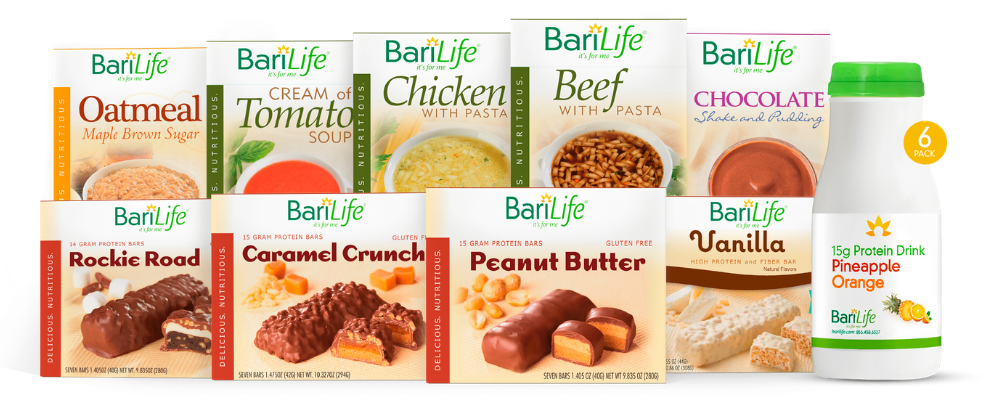After months of preparing and planning for your gastric sleeve surgery, you did it! The surgery was a success, and you’re recovering…but now what? Will the weight just melt away easily, or will you have to work for it?
What about exercise and diet? This begs the ultimate question, how to lose weight after gastric sleeve surgery?

Rest assured we will answer your questions here. Think of this article as your guide on how to lose weight after gastric sleeve surgery.
Before we can jump into the “how-tos,” let’s take a look at some weight loss statistics.
What is the average amount of weight lost after gastric sleeve surgery?
The buzz term here is Excess Weight Loss. That is, the amount of weight you are carrying beyond your ideal body weight. This gives us that window between your ideal body weight and the amount of weight you stand to lose.
You can learn more about excess weight loss and determine your ideal body weight here. For our purposes, most can expect to lose around 60% of their excess body weight within the first year after gastric sleeve surgery.
For most, the majority of the weight will come off as a product of the surgery itself and by following the guidelines set out by your physician.
What are the recommendations post-op?
Because every clinic and doctor is different, it’s always a good idea to check with your doc for their specific recommendations. However, on average, the guidelines remain very similar.
Now, here is where we get into how to lose weight after gastric sleeve surgery.
Let’s start with your diet.
Diet guidelines
Immediately after surgery, you will likely begin a 4-Phase Post Op Diet. The primary intention of this diet is to allow healing of the surgical site, by introducing liquids first, then purees, then soft foods, and lastly, healthy solid foods.
During the 4-phase post-op diet, often dubbed, “The Honeymoon Phase,” weight loss appears effortless. You are becoming acclimated to a decrease in appetite as well as an earlier feeling of fullness which leads to a significant decrease in calories.
You will likely find yourself quite motivated having undergone surgery. All of these factors lead to rapid early weight loss.
During phase 4, or the Stabilization Diet, you will get lots of practice creating meals with a high protein, lower calorie content.
After completing the 4-phases of the post-op diet, usually, around 6 months after surgery, the real “work” begins. This is your long-term weight loss diet that you will remain on until you reach your goal weight.

The major predictor of post-surgical weight loss is calorie intake. Because many clinics recommend a calorie intake of 900-1200 calories each day, getting in the recommended amount of protein and nutrients can pose a challenge.
Men should take in a minimum of 75g protein each day, while women should consume a minimum of 60g protein daily. It is most important that these protein requirements are met.
Lower calorie protein shakes between your meals are often found to be beneficial in helping you to reach protein requirements for the day.
Additionally, it is almost always recommended that patients take a vitamin and mineral supplement to prevent deficiencies.
By following the dietary guidelines set out by your clinic, you will set yourself up for successful weight loss.
Exercise guidelines
Weight loss is inevitable with gastric sleeve surgery. However, the amount varies from person to person. Research is clear that exercise plays a critical role in maximizing weight loss after surgery.
It is very important that you get clearance from your physician before doing any physical activity post-surgery. Walking is usually the first step to ease yourself back into exercise and is often recommended for the first 6-8 weeks.
After about 2 months or so, when you’ve been walking regularly, your doctor may give you the go-ahead to add in some new light exercises. Weight lifting is not yet recommended.
You will likely be able to add in some weights around 4 months post-surgery. Even then, it is important to listen to your body and take it easy when necessary.
At about 6 months, it’s usually safe to resume all exercise activities. Whether it’s going to the gym, taking an exercise class, or doing a workout video at home, adding variety to your routine while staying consistent is key.
This will help to improve your cardiovascular health, strength, bone health, and helps keep the scale moving in the right direction.

You can find an even more detailed, step by step exercise plan here.
Pitfalls to avoid
So now that you have the diet and exercise guidelines down pat, let’s talk about some common stumbling blocks to avoid that have the potential to derail your weight loss.
- Sneaky Sugar. That is the sugar that is hidden in premade food like salad dressings, ketchup, barbecue sauces, yogurt, cereal, and sugar-sweetened beverages.
- Sugary drinks. This one deserves its own category. Drinks like sodas, teas, juices, and smoothies can have more calories and sugar than an entire meal.
- Snacking in between meals. It is surprisingly easy to overstep your calorie limits with a few bites here and there. Snack only when it is a well-thought-out, high protein food. A good example is a low sugar protein shake.
- Alcohol. Drinking alcohol not only leads to inflammation and may cause increased nausea and vomiting, but is also a source of empty sugar calories and should be avoided or had sparingly.
Tips and tricks
When focusing on how to lose weight after gastric sleeve surgery, keep some of these tips in your back pocket to optimize your weight loss.
- Focus on serving sizes. Because there is now limited space in your stomach, each bite of food is taking up serious real estate. Don’t get caught up eating nutrient-poor foods like chips, sweets, and baked goods and thus leaving little room for those protein powerhouse foods.
- Chew your food well. Chewing food well not only aids in digestion after gastric sleeve, as true digestion starts in the mouth, it also slows down mealtime. The slower you eat, the more time you allow your body to recognize that you are full, which helps avoid overeating.
- Avoid drinking beverages at mealtime. Although it is very important to stay hydrated, liquids take up much of that valuable stomach space. It is important to ensure you are adequately nourished and meeting nutrient requirements during mealtime. Drink plenty throughout the rest of the day.
- Eat mindfully. Mindful eating is the art of using all five senses during a meal and has been proven to be an effective method in weight loss. Recognize how the food looks aesthetically, how it smells, all of the different tastes and textures. This not only slows down the eating process but allows for a more satisfactory eating experience.

Bringing it together
Let’s take a moment to review.
Follow the guidelines of your physician and clinic by adhering to post-surgical diet recommendations.
Be sure to add in exercise when you get the green light, and stick to it consistently.
Avoid those belly-busting pitfalls like sugary drinks, sneaky sugars, alcohol, and excess snacking.
Try to give yourself the best chances by following some of our tips like chewing food well, focusing on serving sizes, avoiding drinks during mealtime, and give mindful eating a try.
So there you have it! That is how to lose weight after gastric sleeve surgery.
Bariatric Jump Start Diet
If you need a kickstart then you can try one of our Jump Start Diet Kit. They are pre-bundled kits to jumpstart your weight loss efforts, build momentum and give you the confidence to transition into your long-term bariatric diet.





What are your tips and tricks to post-bariatric success?